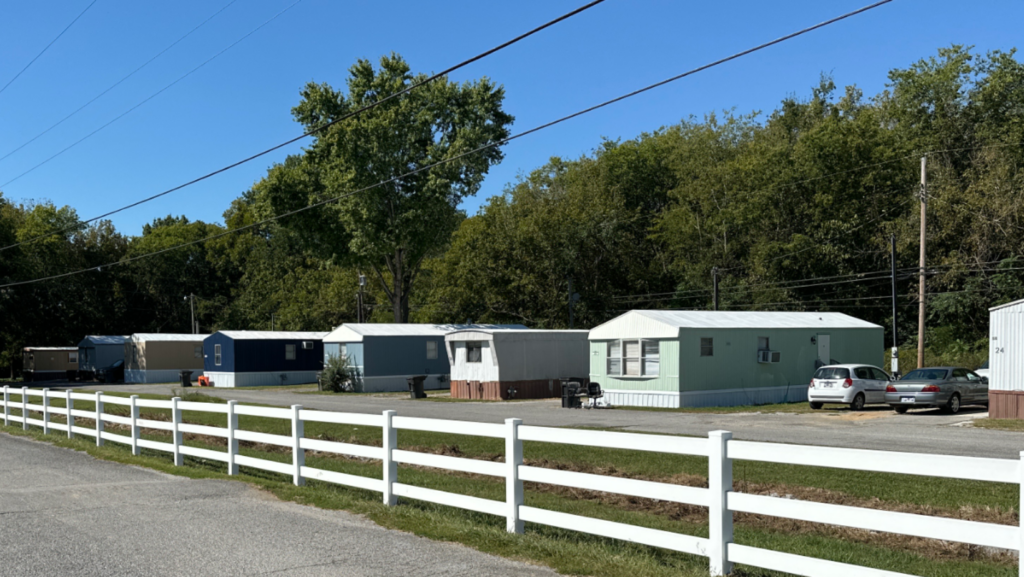Affordable Housing & Mobile Home Park Investments in 2024
-
 Tristan Hunter - Investor Relations
Tristan Hunter - Investor Relations
Introduction:
In the evolution of real estate, the pursuit of affordable housing solutions has become more pressing than ever. As we navigate through 2024, mobile home park investments have generally emerged as a strategic and socially responsible avenue for those seeking to address the demand for affordable living spaces. This article serves as a comprehensive guide, offering insights, strategies, and a roadmap for potentially successful mobile home park investments against the backdrop of the evolving affordable housing landscape.

Affordable Housing Challenges in 2024:
The year 2024 brings with it a set of unique challenges for the affordable housing crisis. Escalating housing costs, population growth, and economic fluctuations contribute to the urgency of finding sustainable solutions, to cater for those that can’t afford the exorbitant housing prices. Mobile home park investments present a typically viable and accessible approach to meeting the growing demand for affordable housing options.
Advantages of Mobile Home Park Investments in the Affordable Housing Sector:
1. Historical Affordability and Accessibility:
Mobile home parks generally provide an affordable and accessible housing solution for individuals and families. As the cost of traditional housing continues to rise, mobile homes often offer a more budget-friendly alternative, making homeownership achievable for a broader demographic.
2. Potential Steady Cash Flow for Investors:
Investing in mobile home parks often translates to a reliable and steady cash flow for investors. The land lease model, where residents own their homes but lease the land, potentially ensures a consistent stream of income. This stability is particularly attractive for investors navigating the uncertainties of the real estate market. Keel Team adopts a similar way of thinking and we aim to convert all our Park Owned Homes to Tenant Owned Homes before we likely refinance through agency debt (Fannie Mae/Freddie Mac).
3. Community-Centric Living:
Mobile home parks usually foster a sense of community among residents. This community-centric living model often contributes to tenant stability, reduces turnover rates, and enhances the overall appeal of the investment. Creating a supportive and engaging community environment can likely solidify the success of mobile home park investments. The goal is to foster tenant retention by improving their lives and the community around them.
Download our free eBook on the “Top 20 Things Learned from Mobile Home Park Investing “
By Andrew Keel

Strategies for Potentially Successful Mobile Home Park Investments in 2024:
1. Conducting Thorough Market Research:
In-depth market research is a crucial first step for investors eyeing mobile home park opportunities in 2024. Understanding local demographics, economic conditions, and housing demands can inform strategic investment decisions and contribute to long-term success.
At Keel Team, we aim for markets with a median income of $40,000 per year, median home price of at least $100,000 and the three bedroom apartment rental rate at least $1,000. This buy box has helped us acquire mobile home parks in secondary markets where most investors would not take the risk on. This overall suits the Keel Team’s model better and works in hand with Government Sponsored Entities like Fannie Mae/Freddie Mac, who aim to improve affordable housing in these markets.
2. Embracing Technological Integration:
Leveraging technology is often paramount for successful mobile home park management. Implementing property management software like Rent Manager with PayLease Integration, smart home technologies, and online communication platforms, not only potentially streamlines operations but also enhances the overall resident experience.
3. Diversifying Revenue Streams:
Diversification within mobile home park investments can potentially mitigate risks and contribute to sustained success. Exploring additional revenue streams, such as offering amenities or partnering with local service providers, can enhance the overall financial health of the investment. Squeezing every dollar out of the asset involves utilizing every inch of the property because commercial property value is measured on the income it produces. Ancillary income, renting storage to residents, provisions for 3rd party RV or boat storage are all typical ways of squeezing the asset for its worth.
4. Sustainable Community Development:
Investors can likely enhance the appeal of their mobile home parks by focusing on sustainable community development. This includes eco-friendly initiatives, efficient waste management, and creating communal spaces that contribute to the well-being of residents. Recycling initiatives, reduced waste incentives and rewards for sustainable practices could contribute to this.
5. Legal Compliance and Regulation Understanding:
Navigating the legal landscape is critical for mobile home park investors. Before investing in a mobile home park, it’s essential to verify with local zoning and building departments to sidestep unforeseen and unnecessary complications when trying to fill vacant spaces. For instance, one of the first parks Keel Team purchased had a restriction against bringing in homes more than 10 years old. Issues like these could lead to budget overruns.
Some local authorities may have a negative perception of mobile home parks, which can complicate operations and the process of adding new homes. It’s important to obtain a zoning confirmation letter from the zoning officials, confirming that the property is legally zoned for use as a mobile home park, to avoid the risk of closure.

Challenges and Mitigation Strategies:
While mobile home park investments offer numerous advantages, challenges may arise, including economic downturns, regulatory changes, and tenant turnover – especially in the first few months of ownership. Try not to worry too much if you experience increased tenant turnover in the beginning – its common in this space. As you start improving the community, increasing the value perception and curb appeal, you will most likely have plenty of interest to fill those vacant homes. Luckily, mobile home parks are historically resilient in times of economic downturns and uncertainty. At the end of the day, everyone needs housing, right? Especially in times of crisis.
Conclusion:
In conclusion, mobile home park investments present a promising opportunity for investors to contribute to the affordable housing crisis solution in 2024. By understanding the challenges, embracing strategic approaches, and mitigating potential risks, investors can likely chart a course for potentially successful mobile home park investments. Beyond historical financial returns, these investments have the potential to create thriving communities, address the demand for affordable housing, and foster a socially responsible approach to real estate in the years to come. As the pursuit of affordable housing takes center stage, mobile home park investments often stand as a beacon of opportunity for those seeking both financial prosperity and a positive impact on society.
At Keel Team Mobile Home Park Investments, our mission is twofold: to uplift communities and to potentially optimize investor returns. We prioritize enriching the lives of residents while potentially ensuring robust profits for our partners. Reach out via the contact details provided below to explore our investment approach and strategy in detail.”
Learn more about mobile home park investing.
Interested in learning more about mobile home park investing? Get in touch with us today to find out more.
Disclaimer:
The information provided is for informational purposes only and should not be considered investment advice, nor a guarantee of any kind. All opinions are our own and should not be considered advice. There are no guarantees of profitability, and all investment decisions should be made based on individual research and consultation with registered financial and legal professionals. We are not registered financial or legal professionals and do not provide personalized investment recommendations.

Tristan Hunter - Investor Relations
View The Previous or Next Post
Subscribe Below 👇





